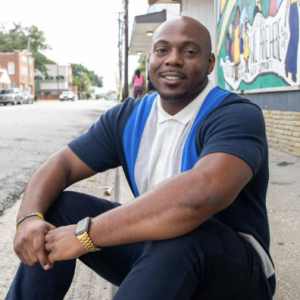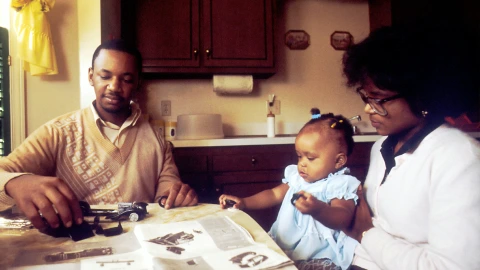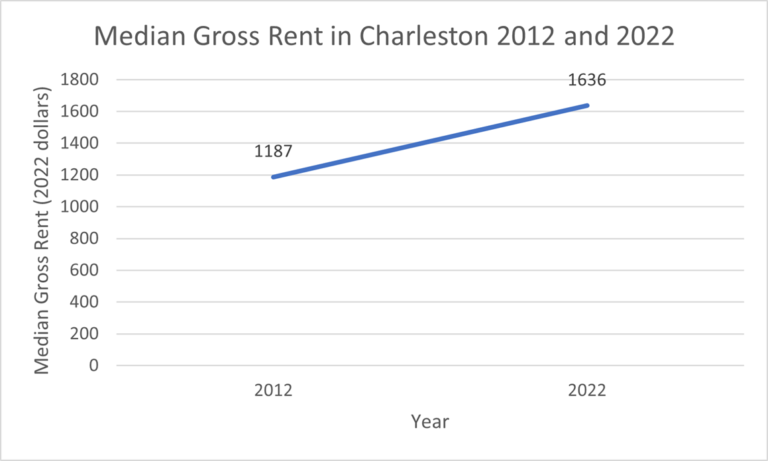By Craig Logan
For as long as I can remember, home has been more than just a place; it’s been a shelter, a hangout spot for friends, or, as my mama would say, “home is a peace of mind.” It’s where I’ve laughed, cried, loved, and learned. It’s the backdrop to countless memories, both big and small. It’s where memories return to childhood roots and familiar sights, sounds, and smells.
Growing up, my earliest memory of home was a Walkman, where I would play different cassette tapes and sing. It was a world within a world, a personal sanctuary. It was where my siblings and I would gather around on the front porch for endless hours of laughter, family cookouts, and peaceful evenings. It was where we celebrated holidays, birthdays, and milestones. It was the place where we felt safe and loved unconditionally.
As I got older, my perspective on home evolved. It became more than just a physical space; it symbolized stability, independence, and personal growth. When I moved out of my childhood home, I realized the privilege of having a place to call my own. It was a space where I could invite friends, cultivate my interests, and build a life that was truly mine. Once I purchased my first home, I felt a sense of relief because I had a place to call my own. I understood what that sense of privilege meant.
But home is not just about personal fulfillment; it’s also about community. It’s where we connect with our neighbors, build friendships, and create a sense of belonging. It’s where we support each other during tough times and celebrate each other’s successes.
Unfortunately, the truth is that not everyone has the privilege of calling a place home. Millions of people around the world face housing insecurity, homelessness, or substandard living conditions. The U.S. Department of Housing and Urban Development (HUD) reported that nearly 1.25 million people experienced homelessness at some point in 2020 in the United States. Data from the Department of Education reveals that 1.28 million students (not including parents or siblings not enrolled in K-12 schools) experienced some form of homelessness during the 2019-20 school year.
A strong correlation exists between housing insecurity and lower academic achievement, including lower graduation rates. Without a solid foundation, it’s tough to build anything else. Housing insecurity can lead to a host of challenges, including mental and physical health issues and poverty. This should be a real wake-up call about how essential housing is to human well-being.
Median Gross Rent in Charleston 2012 and 2022
Shortage of affordable housing drives homelessness
As Southern cities like Charleston, South Carolina, attract new affluent residents, increased demand for housing puts strain on the local housing market, which drives up the cost of living. In Charleston between 2012 and 2022, median gross rent city-wide increased by nearly $500 as median household income grew by more than $20,000, adjusted for inflation. Individuals with lower incomes are getting priced out of the housing market and pushed to relocate to cheaper areas or, in some cases, into homelessness. “Inadequate housing supply, particularly of affordable units, is consistently shown to be the primary driver of homelessness in the U.S.—significantly outweighing factors such as substance use, poverty, and mental health.” (Brookings Institute)
Housing insecurity has significant macroeconomic impacts that extend beyond individual concerns, warranting attention from both government and philanthropic organizations. When residents lack stable housing, they often struggle to maintain consistent employment, which can lead to economic instability. This instability can diminish the local tax base and reduce overall economic productivity. Additionally, housing insecurity is linked to social instability, as society frequently addresses poverty through punitive measures rather than implementing affordable housing solutions. This issue disproportionately affects marginalized groups, further deepening economic inequality and contributing to a more divided society.
Perhaps most concerning is the effect of housing insecurity and homelessness on life expectancy and the potential that’s lost due to inadequate living conditions. According to the United States Interagency Council on Homelessness, tens of thousands of people die each year from the consequences of inadequate housing and homelessness—an issue exacerbated by climate change’s impact on vulnerable communities.
Safe, Affordable Housing is a Social Determinant of Health
Home is more than just a place to sleep. A home is where dreams take root, families grow, and communities thrive. It’s where we feel safe enough to be ourselves, build community and social bonds, and make mistakes and learn from them. Research from Baumeister & Leary (1995) suggests that this need to belong has its roots in evolution. The article states, “Our need to be connected and develop healthy bonds is essential to our emotional and physical well-being as food and safety.”[i] That sense of home is essential for our mental and emotional well-being. It’s where we recharge, find comfort, and feel a sense of belonging.
You know this already, but it bears repeating: housing is also key to building wealth, promoting upward economic mobility, and reducing child poverty. People with stable homes are more likely to care about their communities, create jobs, and contribute to the overall economy. It creates a ripple effect that benefits everyone.
What can we do to ensure everyone has a decent place to live? Start by doing what’s right and not just what’s easy. It begins with having tough conversations about housing insecurities worldwide and the importance of giving everyone that basic right. We need to support policies that build more affordable housing, protect renters’ rights, and help struggling people find a home. We must spread the word and push for change in our neighborhoods and cities from the local to state to federal level.
Home is the foundation of everything. It’s where we rest, recharge, and dream about the future. It’s a place of hope and possibility. Let’s make housing a priority and work together to build a world where everyone has a place to call home.

Craig Logan is a grassroots organizer, community advocate, and Housing Executive Fellow with the Charleston Metro Chamber of Commerce. He holds a bachelor’s degree in Sociology and a master’s in Project Management from Charleston Southern University. Craig serves as a commissioner for the North Charleston Housing Authority and is a member of Alpha Phi Alpha Fraternity, Inc. His passions include youth development and fostering a community that ensures access to housing, economic opportunities, and education for all.
[i] Baumeister, R. F. & M. R. Leary. “The need to belong: Desire for interpersonal attachments as a fundamental human motivation” (1995). Psychological Bulletin, 117(3), 497-529. https://doi.org/10.1037/0033-2909.117.3.497
Banner image: Photo by National Cancer Institute on Unsplash





